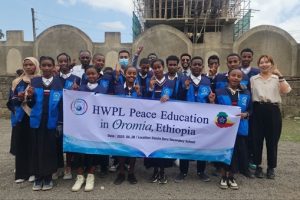
The 17th BRICS Summit is set to take place in Rio de Janeiro, Brazil, from July 6 to 7. With its historic expansion, BRICS has entered a new stage of “Greater BRICS cooperation,” characterized by broader participation, stronger representation, and rising global influence. The ongoing conflicts in Ukraine and the Middle East, coupled with rising tensions across the geopolitical and economic landscapes of the world, have created a backdrop in which many developing nations from the Global South are seeking alternative platforms development.
And that’s where an expanded BRICS can come in. By positioning itself as the voice of the Global South, the mechanism is taking on more responsibilities, expectations and challenges.
In this episode of Global South Voices, Pakistan’s Senator Mushahid Hussain Sayed brings together prominent voices from Brazil, Iran, South Africa, and India to explore the whole arc of “Greater BRICS cooperation,” from its origins and evolution to its current framework, key achievements, and future prospects.
By examining these angles, the program is aimed at providing some food for thoughts for the audience to think over the key question as for how nations from the Global South, representing approximately 85 percent of the world’s population and nearly 4 percent of the world’s GDP, can have more clout over hot-button issues of our times and advocate for more equitable development for the community of mankind.
Rewriting the rules of the global economy
Professor Paulo Nogueira Batista, former IMF executive director from Brazil, argues that the West – particularly the U.S. – has walked away from the very rules-based order it created after World War II. When neoliberalism benefited them, they championed it; now, faced with China’s rise and their own fading competitiveness, they’ve embraced protectionism. The result is a fractured and unpredictable global economy. He stresses that BRICS+ must recognize this dangerous shift and work collectively to ensure fairer global economic interactions.
In South Africa, prominent journalist Faizal Dawjee echoes this sentiment, saying that the so-called “rules-based order” only ever truly applied to the West. The expansion of BRICS is a direct response to that hypocrisy – and an affirmation of the Global South’s right to set its own terms.
From resistance to resilience: The BRICS spirit in action
The panel also explores how BRICS solidarity is playing out in real-world scenarios. From Tehran, Mohammad Hussain Baqeri, the founder and chairman of the Iqbal Forum, cites the latest hot-button issues in the Middle East to stress the importance of stronger unity and more powerful actions by BRICS members in the face of headwinds from this ever-changing international landscape.
Mr. Dawjee emphasizes that the fact that more countries in the Global South are now part of the BRICS project is a clear indication of the Global North just offering lip service in terms of offering public goods for the world. As almost 40 percent of the world’s population now belongs to the BRICS countries, and 40 percent of global trade is conducted within member states, the “Greater BRICS” mechanism enjoys a great potential to fill the vacancy in the international order.
There is progress but BRICS must go further, as Muhammad Saqib, executive director of the Dubai-based Center of Geo-economics for the Global South from India, reminds the panel that BRICS must go further. His research shows that 76 percent of the Global South’s needs could be met within the South itself, but BRICS must become the coordinating engine.
He also notes that as more developing countries are showing their willingness to join the mechanism, this trend is a direct snub to the Western countries-led world order; and by conjuring wills to act and concrete action plans among member states, BRICS is bound to serving as one of the bellwethers of this future trend of multilateralism in the multi-polar world.
Institutions for the future
The panelists highlight the importance of building effective institutions to support the ambitions of the Global South. The New Development Bank is praised as one of BRICS’ most significant achievements – successfully mobilizing resources, expanding membership, and financing key infrastructure projects. As the bank continues to grow, it symbolizes BRICS’ commitment to development rooted in cooperation, not conditionality.
The panelists also think that BRICS should make greater use of its soft power potential, deepening people-to-people exchanges in education, culture, and innovation. With flexible mechanisms and shared leadership, the bloc can evolve into a dynamic force that not only reflects the Global South’s diversity, but also advances its collective goals.
As Pakistan’s Senator Hussain concludes, BRICS remains the most promising platform for the Global South to assert its voice and agency. With growing global influence, expanding partnerships, and concrete institutions already in place, BRICS is no longer just a vision – it is becoming a vehicle for real change.
The world is eyeing more on fruitful proposals and initiatives for cooperation emerging from the 2025 BRICS summit in Brazil. The Summit is not just a diplomatic gathering, but a litmus test for the bloc’s ambitions to reshape global power dynamics, to guide the potential shift towards a more balanced and multi-polar world, where emerging economies play a more prominent and independent role in defining the future of international relations.
BY ADDISALEM MULAT
THE ETHIOPIAN HERALD SATURDAY 5 JULY 2025





